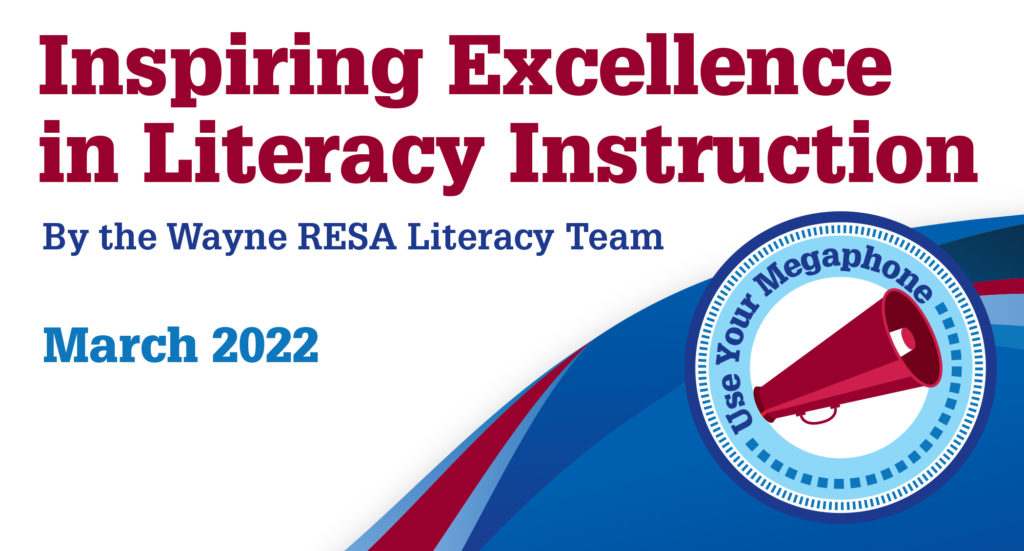
This newsletter has been created by Wayne RESA literacy consultants for literacy educators. In each issue, you will find Literacy Learning Network updates and information, statewide initiative updates, book synopses, teaching and coaching strategies, and upcoming professional learning opportunities. We look forward to partnering with you as we engage in best practices in literacy instruction for all students.
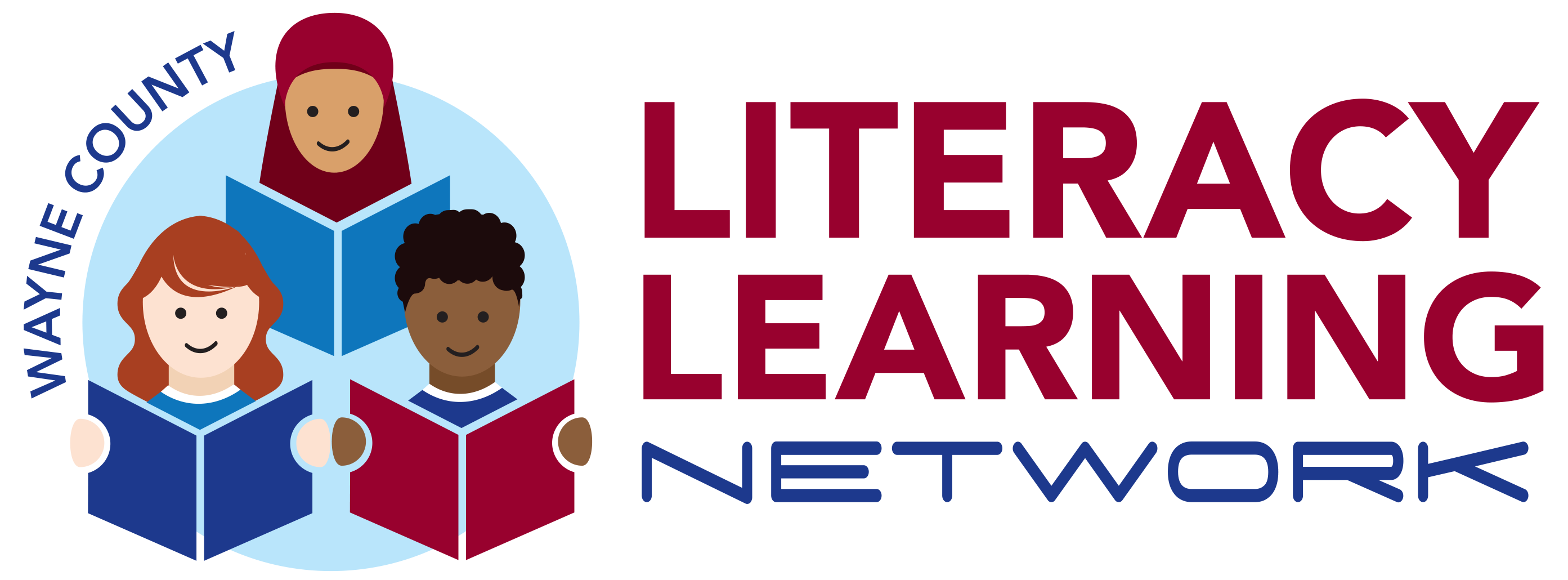
Literacy Learning Network Updates
Planning Post-Pandemic Professional Development

The COVID-19 pandemic has changed a great deal within our educational landscape, including the delivery of professional learning for Wayne County educators. Prior to March 2020, most of us had never considered Zoom or Moodle as options for learning alongside one another. As we plan for the year ahead, it is our aim to serve you in ways that best fit your schedules, interests, students’ needs, and more, all while helping you maintain a healthy work-life balance. We need your input! If you could take this short (less than five minutes) survey, we will do our best to tailor our professional development opportunities to support you.

The LLN Advisory Council
In mid-February, members of the original Literacy Learning Network Advisory Council reconvened, welcoming new members from our districts and from within Wayne RESA. Initially, this group met to establish the Wayne County Theory of Action. Parallel to statewide efforts, the Literacy Learning Network developed a proactive stance to address the imminent Read by Grade Three legislation. Amongst the state’s efforts were the development, publication and distribution of the Literacy Essentials suite of documents. Additionally, grant money was provided throughout the state to recruit, train, and build the capacity of literacy coaches. These measures allowed the LLN to enact several tenets of the Wayne County Literacy Theory of Action, such as establishing and monitoring literacy goals. While the COVID-19 pandemic temporarily interrupted the LLN Advisory Council’s work, the group has reignited its collaborative efforts to raise the level of research-based literacy instruction throughout the county because of its direct and positive impact on students.

Coaching Connections
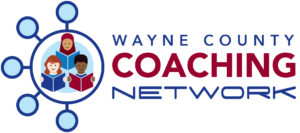
Both the COSA Collaborative and the Wayne County Coaching Network continue to engage in learning with regional and national literacy experts, receive statewide updates pertaining to upcoming professional learning opportunities, and build a strong county-wide network of literacy coaches invested in improving literacy instruction. Both groups look forward to a final session with Dr. Diane Jackson who will promote the benefits of fostering and sustaining a community of literacy coaches within and beyond their districts.
Statewide Updates





Books and Strategies

Book Talk
Igniting Passion in Readers of All Ages
Nina: The Story of Nina Simone
Traci N. Todd and Christian Robinson
 This Coretta Scott King Book Award Nominee tells the story of Eunice Waymon, a musical prodigy at the age of three who later becomes the famous musician and Civil Rights activist Nina Simone. While Eunice’s minister mama forbade contemporary music, her pianist father taught her to play jazz. Throughout the story, Robinson’s collage illustrations compliment Todd’s retelling of Nina Simone’s struggles to develop her artistic skills amid regular encounters with racism and oppression. Simone’s compelling music continues to inspire activism around the world.
This Coretta Scott King Book Award Nominee tells the story of Eunice Waymon, a musical prodigy at the age of three who later becomes the famous musician and Civil Rights activist Nina Simone. While Eunice’s minister mama forbade contemporary music, her pianist father taught her to play jazz. Throughout the story, Robinson’s collage illustrations compliment Todd’s retelling of Nina Simone’s struggles to develop her artistic skills amid regular encounters with racism and oppression. Simone’s compelling music continues to inspire activism around the world.
Before the Ever After
Jacqueline Woodson
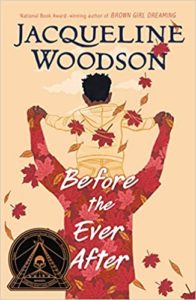 In another award-winning book, Woodson details the life of main character ZJ, a young boy trying to come to terms with his father’s sudden and often unpredictable mood changes. ZJs father, an NFL athlete, has been a hero to many, but as quickly as he can be moved to tears, he can erupt with anger. ZJs mom works with doctors to discover a cause to no avail. In her author’s notes, Woodson explains that athletes experiencing similar trauma had no recourse until the early 2000s when Dr. Bennett Omulu was able to connect these behaviors to CTE (chronic traumatic encephalopathy).
In another award-winning book, Woodson details the life of main character ZJ, a young boy trying to come to terms with his father’s sudden and often unpredictable mood changes. ZJs father, an NFL athlete, has been a hero to many, but as quickly as he can be moved to tears, he can erupt with anger. ZJs mom works with doctors to discover a cause to no avail. In her author’s notes, Woodson explains that athletes experiencing similar trauma had no recourse until the early 2000s when Dr. Bennett Omulu was able to connect these behaviors to CTE (chronic traumatic encephalopathy).
96 Miles
J. L. Esplin
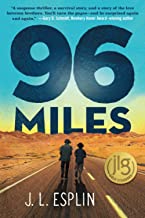
John and Stew Lockman find themselves alone at home when the western portion of the United States is hit with a massive blackout. The two boys struggle to protect the supplies their father has stockpiled for years, only to be looted by ruthless survivalists. Their only hope is to walk 96 miles to a family friend who, similar to the boys’ father, has accumulated at least a year’s worth of provisions. Their journey is fraught with obstacles, but the boys’ devotion to each other and two strangers who have joined them along the way is inspiring and heartwarming.
Elatsoe
Darsie Little Badger
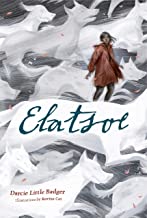 In her award-winning debut novel, Badger explores Indigenous culture and magic through the main character Elatsoe. Upon hearing that her cousin Trevor has died in a tragic car accident, Elatsoe (Ellie) is visited by his spirit in a dream. He explains that his death was no accident–he was murdered. Driven to find her cousin’s killer, Ellie elicits the help of friends, family, and her ghost dog Kirby to solve the mystery and dispel the evil lurking in the small and sinister town of Willowbee.
In her award-winning debut novel, Badger explores Indigenous culture and magic through the main character Elatsoe. Upon hearing that her cousin Trevor has died in a tragic car accident, Elatsoe (Ellie) is visited by his spirit in a dream. He explains that his death was no accident–he was murdered. Driven to find her cousin’s killer, Ellie elicits the help of friends, family, and her ghost dog Kirby to solve the mystery and dispel the evil lurking in the small and sinister town of Willowbee.
Impact Players: How to Take the Lead, Play Bigger, and Multiply Your Impact
Liz Wiseman
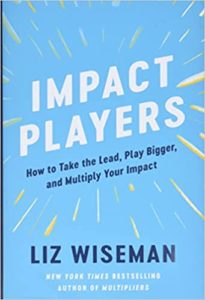 In the first part of her book, Wiseman examines the characteristics that drive some to make an impact within their organizations. Often, such colleagues are visionary about the work that needs to be done and take the lead. While they are product-oriented, impact players are also flexible about process and product. Ultimately, they seem to seamlessly guide the organization in a positive direction. Yet, Wiseman explains that making an impact requires an “impact player mindset.” She devotes the second part of the book to describing how to change mindsets when building an influential team.
In the first part of her book, Wiseman examines the characteristics that drive some to make an impact within their organizations. Often, such colleagues are visionary about the work that needs to be done and take the lead. While they are product-oriented, impact players are also flexible about process and product. Ultimately, they seem to seamlessly guide the organization in a positive direction. Yet, Wiseman explains that making an impact requires an “impact player mindset.” She devotes the second part of the book to describing how to change mindsets when building an influential team.
Formative Assessment in the Disciplines: Framing a Continuum of Professional Learning
Margaret Heritage and E. Caroline Wylie
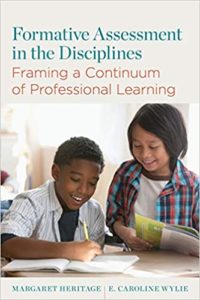 The framework presented by Heritage and Wylie emphasizes the importance of professional learning support for teachers from preservice to seasoned veteran. Centered within this continuum are discipline-specific formative assessment practices, and while the book focuses on the four core content areas, consideration of the content standards, learning goals, success criteria and analysis of formative assessment in action can be applied to any classroom setting. As the authors note, “Formative assessment practices are a key driver in students’ literacy acquisition.”
The framework presented by Heritage and Wylie emphasizes the importance of professional learning support for teachers from preservice to seasoned veteran. Centered within this continuum are discipline-specific formative assessment practices, and while the book focuses on the four core content areas, consideration of the content standards, learning goals, success criteria and analysis of formative assessment in action can be applied to any classroom setting. As the authors note, “Formative assessment practices are a key driver in students’ literacy acquisition.”
5
Ways Coaches Can Support Families During Conferences
Highlight Literacy-Supporting Activities and Resources
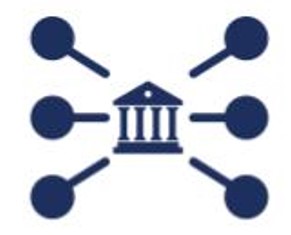
Connect families with community events that may be of interest, such as festivals, programs offered at local libraries, and celebrations. Highlighting local museums, zoos, science centers, and other engaging activities is also beneficial. Reach out to these venues ahead of time to see if there are free passes or discounts available (www.michiganactivitypass.info). Creating a calendar of events or flyer may also be helpful, and don’t forget to highlight the importance of engaging in these types of activities.
Facilitate Informational Sessions on Interventions and Systems of Support

Interventions and systems of support can be confusing for families, especially if they learned about them through an Individualized Reading Improvement Plan for their child. Providing informational sessions on these topics can help families feel more comfortable and truly understand the steps being taken to ensure their child receives the necessary literacy supports. Consider recording this session to share with families who may not be able to attend.
Share Resources and Ideas to Strengthen Literacy Development at Home

Providing families with ideas and resources to strengthen literacy development at home builds connections between the school and families. Encourage adults to prompt children during reading and writing. Explicit examples of how to effectively prompt and how to incorporate literacy-promoting strategies into everyday activities, such as cooking, communicating with others, and even while traveling, can also be helpful. Ensure families know where they can go for more information or support.
Meet with Families to Answer Questions and Explain IRIPs

Many children receive Individualized Reading Improvement Plans (IRIPs). These documents can be difficult for families to understand and/or cause anxiety or uncertainty. Set up a place where families can meet with you to discuss what the plan means, what the school is doing to ensure their child receives the instruction he/she needs, and specific ways in which families can support literacy development at home.
Facilitate Interactive Read-Alouds & Family Story Shares

Interactive read-alouds are a great way to engage children and encourage higher level thinking. Consider providing an option for families to participate in a structured story time. In addition to sharing text in a meaningful way, you are modeling an important practice. Invite families to sign-up and share their own favorite stories, poems, or songs. Local librarians and/or community members could also serve as guest readers.
Click here to download this one-page guide created by Michelle Wagner.
Reference: Michigan Association of Intermediate School Administrators General Education Leadership Network Early Literacy Task Force (2016). Essential instructional practices in early literacy: K to 3. Lansing, MI: Authors.
Noteworthy News
Our Literacy Team welcomes two new Literacy Consultants! Jeff Austin joins us from Ann Arbor Public Schools’ Skyline High School where he taught English, served as the English Department Chair, and directed the student writing center.


Jennifer Snapp joins us from Detroit Public Schools Community District where she most recently served as a Curriculum Leader and Literacy Training and Support Coordinator for the DPSCD Office of Literacy.
We are excited to introduce our new team members! Jeff and Jennifer look forward to working with all of you in the coming year as we strive to build impactful literacy practices that advance student success.
Professional Learning
| Upcoming Events at Wayne RESA |
| See the Professional Growth pages on the Wayne RESA site for links to course offerings, their descriptions, and online registration in Learning Stream. Many of our professional learning events will continue to be offered virtually. If the format for a session or series is unclear, please contact any of the Literacy Team members for details. |
| Secondary |
| Analyzing Propaganda & Teaching Media Literacy – Holocaust as a Case Study: April 7 |
| Media Literacy skills have become essential for young people to successfully navigate and critically assess the ever-increasing amount of information they receive throughout their day on social media, advertisements, television, and film. Therefore, it is crucial for students to comprehend and identify how media, both historically and in contemporary society, can be used as a tool to incite hate and violence against certain groups. This learning opportunity examines the events of the Holocaust through the lens of media, by examining propaganda deployed by the Nazis to discriminate against Jews and other minorities. Educators will gain the tools to facilitate classroom discussions on the role and impact of Nazi propaganda during the Holocaust and support their students to critically analyze media in today’s world. For additional information, contact Rosalyn Shahid. |

Tech Resources: Where can I find...


Wayne RESA Literacy Team
If this newsletter has been forwarded to you, and you’d like to subscribe to it, please contact Laura Gabrion.
![]() 33500 Van Born Road • Wayne, MI 48184 • 734.334.1300 • 734.334.1620 fax • www.resa.net
33500 Van Born Road • Wayne, MI 48184 • 734.334.1300 • 734.334.1620 fax • www.resa.net
Board of Education
James S. Beri • Mary E. Blackmon • Danielle Funderburg • Lynda S. Jackson • James Petrie
Daveda Colbert, Ph.D., Superintendent